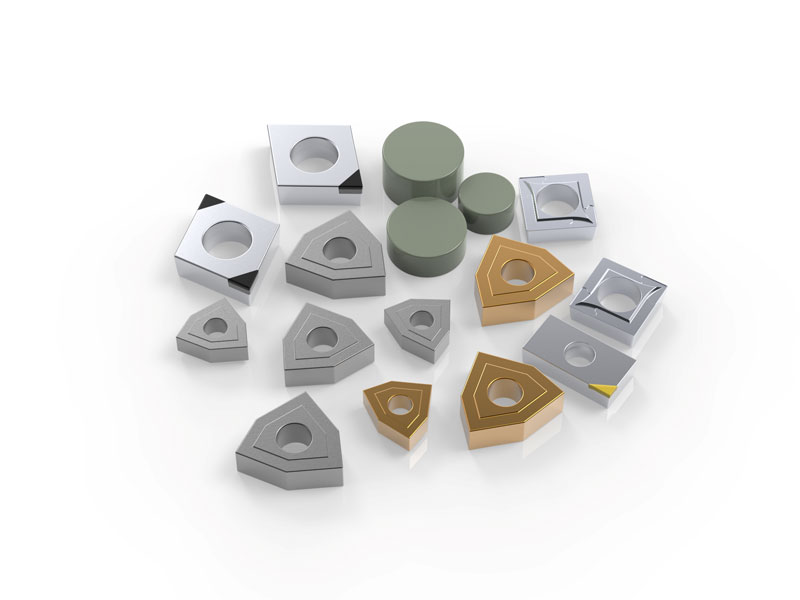In modern CNC insert machining, cutting inserts are essential tools for turning, milling, boring, and other metal cutting processes. Different materials and geometries affect cutting efficiency, machining quality, tool life, and production costs. This article introduces the most common CNC insert materials and their characteristics to help you choose the right solution for your applications.
Tungsten carbide inserts are made from tungsten carbide powder sintered with metallic binders under high temperatures. They offer exceptional hardness and wear resistance, making them ideal for cutting steel, stainless steel, and other metals. Suitable for both roughing and semi-finishing, carbide inserts wholesale provide good toughness, withstand high cutting forces, and maintain sharp cutting edges—making them a staple in machining workshops.
Ceramic inserts suppliers produce ceramic inserts made from superhard materials such as alumina (Al₂O₃) and silicon nitride (Si₃N₄). They have extremely high hardness and excellent heat resistance, making them perfect for high-speed cutting. When machining hardened cast iron, hardened steel, and other hard-brittle materials, ceramic inserts deliver sharp cutting performance and superior surface finish. However, due to lower toughness, they are best used under stable cutting conditions to prevent chipping or breakage.

PCD inserts, made from polycrystalline diamond sintered with metallic binders, are second only to natural diamond in hardness. They provide outstanding wear resistance and thermal conductivity. Ideal for machining non-ferrous metals (aluminum, copper, brass) and non-metallic materials (wood, composites, plastics), high-quality products from the PCD insert factory deliver exceptional precision and surface finish. They are especially suited for mass production and long continuous cutting, reducing inserts changes and increasing productivity.
CBN inserts are produced by sintering cubic boron nitride particles with metallic binders. They are nearly as hard as diamond but offer superior thermal stability at high temperatures. Perfect for finishing and super-finishing hardened steel, cast iron, and certain heat-resistant alloys, CBN tool inserts maintain sharp cutting edges and extend tool life. They significantly improve dimensional accuracy and surface finish, making them ideal for high-precision machining.
Different CNC insert materials each have their own advantages: tungsten carbide inserts are highly durable and versatile; ceramic inserts are well-suited for high-speed cutting of hard and brittle materials; PCD inserts deliver exceptional precision when machining non-ferrous metals and non-metallic materials; and CBN inserts are powerful tools for processing hardened steel and cast iron. For industries seeking comprehensive solutions, diamond tools wholesale suppliers like JoyJet offer a wide range of inserts that combine hardness and precision. Selecting the right insert based on factors such as workpiece material, cutting speed, and surface finish requirements can not only improve machining efficiency but also effectively reduce production costs.